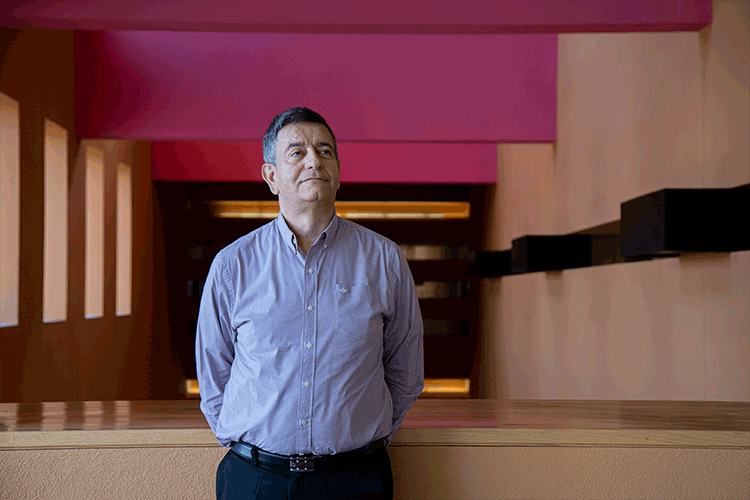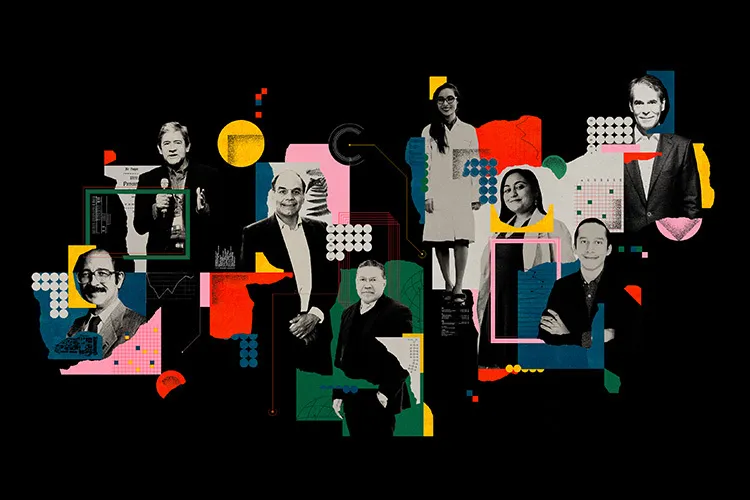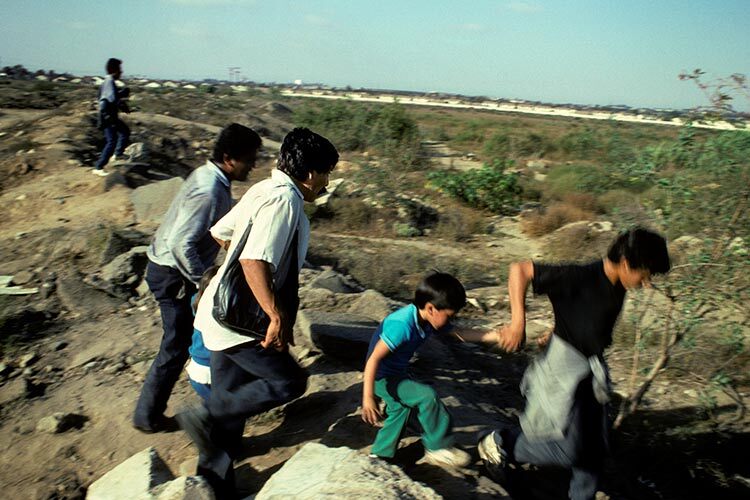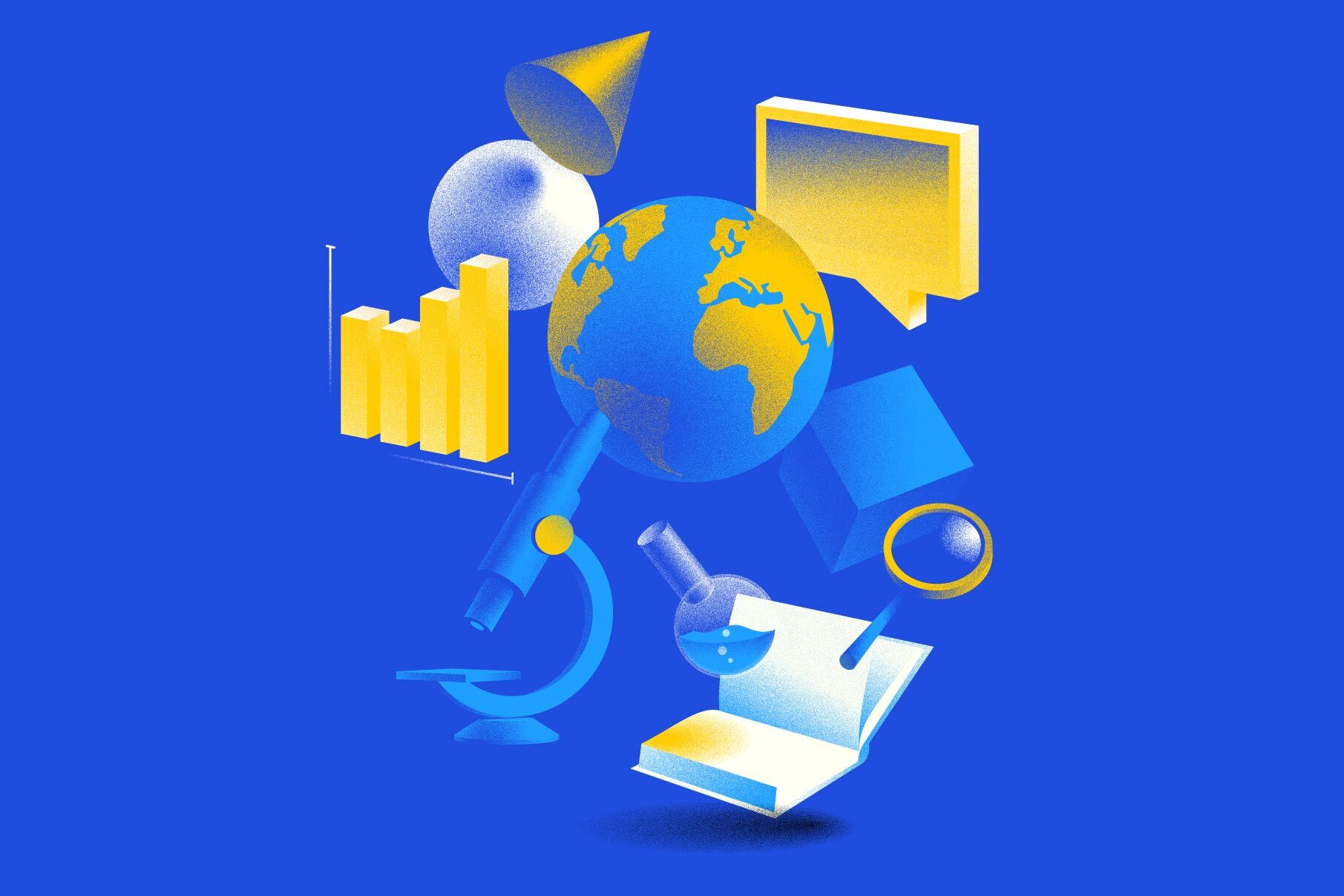Inside a small room inside his house in Pachuca, Mexico, sitting on a deteriorated couch, Juan Manuel García looks towards where the sound of my voice tells him the camera could be. He is a 51-year-old mechanic who lost his vision because he developed glaucoma for not treating his diabetes in time.
At that moment, a nurse and an interviewer from the oriGen project field team finished taking blood samples and administering the health and socioeconomic data questionnaire.
Although he does not know it, he has become a hero of science with his participation. The time, information and samples he contributed will be part of an initiative from the Tec de Monterrey that seeks to sequence the genome of 100,000 Mexicans.

With this, oriGen seeks to create a genetic database of the population so that, in the future, different research groups can understand which diseases we are most prone to and –eventually– medicines, treatments, and public policies tailor-made for our population.
When I asked him why he agreed to participate, he explained that he does not have the financial resources to undergo clinical studies that would allow him to know his health. The project offers them for free in exchange for your collaboration.
“More than anything, I do it to see how my health is doing,” he says, smiling and excited to know that someone cares about him.
Furthermore, he recognizes that being part of oriGen will benefit all Mexicans. “There should be many people who support it,” he says.
Getting enough volunteers to participate is no easy task for the field team. Of the 30 houses they knock on, only one or two will say yes.
A Deep Desire to Know Their State of Health
On March 11, 2024, TecScience accompanied the oriGen field team to Pachuca, Hidalgo, to follow the process closely and learn about the volunteers’ motivations for participating.
Although the project seeks to benefit Mexicans, opening the door to them means letting a group of strangers into your home, allowing them to draw your blood, measure you, and collect data about you and your family.
OriGen is a clear example that, sometimes, science needs people.
The first step in the field is to map the streets of the destination city and visit randomly selected addresses to find people who are willing to participate.
If they let them in, what follows is reading them a letter of consent, in which the team explains the procedure and the use they will give to their information.
After volunteers sign it, one of the team’s nurses takes blood samples, weighs and measures them and, with a specialized scale, examines their hydration status, and the amount of body fat and muscle.
When finished, a surveyor gives them a questionnaire with questions about their health history, socioeconomic data about them and their family. Their results of weight, height and blood glucose level analysis, along with other important parameters are delivered in printed form.
Under the morning sunbeam, we head to the house where Reina Castillo Rivera, a 49-year-old housewife and domestic worker, is.
There, she explains to me that in her family there is a history of senile dementia and hypertension, so she believes it is important to undergo clinical studies.
“[Participating] is something good for my health,” she says with enthusiasm to participate.
Furthermore, she tells me that the OriGen team gave her confidence and she thinks that participating will be positive for everyone.

A Team that Inspires Confidence
Later, Anacleta Pérez Aguilar, a 69-year-old housewife and caregiver for the ill, greets us in her garage.
Like the others, her main reason for studying is to ensure that she has the necessary skills to take care of her health and be in the best possible condition.
Seeing the oriGen and Tec logo on the field team’s uniform, the professionalism with which they work, and the security they convey, makes her feel satisfied with her participation.
“It was very dignified and kind treatment, I have no mistrust towards them,” she says.
Moments later, Brenda Valdez, a 38-year-old housewife, greets us at the entrance to a neighborhood. In the absence of chairs, she takes a bucket and sits on it to tell me that, in addition to wanting to take care of her health, she worries about the well-being of her children.
“[To take care of them] I have to start by seeing how my health is, [knowing] what is happening in my body,” she says.
Furthermore, she believes that participating will benefit Mexicans. “There may be a cure for our diseases, and because we don’t want to participate, we won’t find them; it is better to participate,” she invites.

OriGen Anonymous Heroes
After talking with the volunteers, around two in the afternoon, it is time to make the first cut of samples and transport them to a traveling laboratory that they set up on the Hidalgo Tec campus for pre-processing.
The team makes two cuts per day in each city they visit, one around noon and another in the afternoon.
After each cut, they transfer the samples to the temporary laboratory – which they call headquarters– on the campus of the corresponding city. To do so, a transporter arrives at the meeting point and performs a cold chain, the most delicate step of the entire operation.
This is important because blood samples must always be at a specific temperature to avoid denaturalizing the DNA that will later be sequenced.
In the headquarters laboratory, the data is recorded in a log, the conditions of the blood tubes are analyzed, and once approved, one of the tubes is stored. Serum is extracted from the other to be frozen and stored so that another type of test can be carried out.
From there, they go to the Zambrano Hellión Hospital for validation. Then they are sent either to the central laboratory on the Monterrey campus or to the facilities of the Regeneron Genetics Center -the American company with which oriGen has an agreement– so that the DNA is sequenced.
At the end of the day, I realize that, for the most part, the people who agree to participate do so because they want to know their health, and many times, they do not have the resources or incentives to undergo clinical studies on their own.
Although they may not know it, those tubes they donated contain precious DNA that tells the story of all Mexicans. With this information, oriGen could change the direction of health treatment in Mexico towards one that is centered in prevention and precision.
The project’s benefits will not be immediate, but by participating, these heroes have planted a seed so that future generations will live better.
“In different parts of the world, we do not always have the same diseases, so I think it is excellent that this is made for Mexicans,” concludes Sandra Martínez, a 44-year-old housewife.
Did you find this story interesting? Would you like to publish it? Contact our content editor to learn more at marianaleonm@tec.mx















